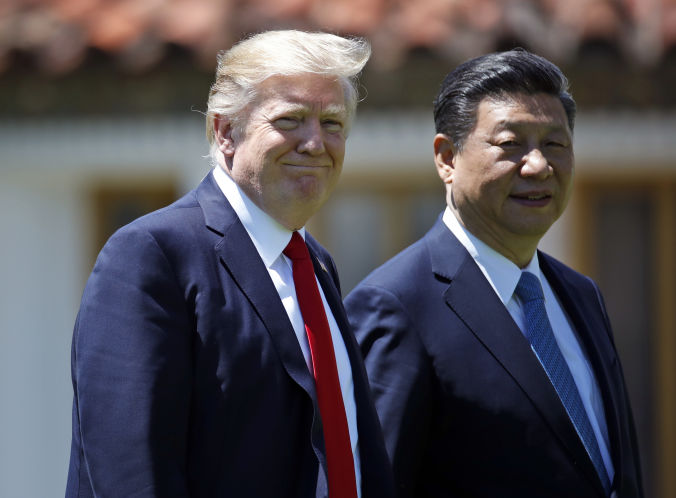We’ve entered a strange portion of President Trump’s first 100 days. The U.S. missile strike in Syria and the current posturing toward North Korea’s threats of nuclear war are a departure from how the Obama administration handled these issues for the past eight years. As a result, many Americans are scared as to how this entire ordeal with North Korea will end as China and Russia continue to be key players.
Report from the Washington Post:
The United States and North Korea are engaging in high-tension brinkmanship, with North Korea warning Tuesday that it will “hit the U.S. first” with nuclear weapons, but the prospects that this could escalate into an actual clash of arms are slim.
The stakes remain too high for both countries, analysts say, today as they were yesterday, as they were last year. But the temperature in the region has become decidedly hotter in recent days. And there’s always the chance that one side or the other could miscalculate.
Expectations are mounting that North Korea will unleash some kind of provocation this week, and the U.S. Navy rerouted an aircraft carrier strike group, capable of both firing missiles and shooting missiles down, to the Korean Peninsula over the weekend.
On Tuesday President Trump issued his latest tweet taking aim at Pyongyang. “North Korea is looking for trouble. If China decides to help, that would be great. If not, we will solve the problem without them! U.S.A.” he tweeted.
North Korea has posed a threat for years to surrounding nations, including U.S. allies such as Japan, and of course South Korea. President Obama, just like his predecessor President Bush, have dealt with the threat of a nuclear-armed North Korea during his presidency and it seems that President Trump wants to be the one to end the talk, and get on with the action.
According to Google Search Trends, the keyword of “World War 3” has recently seen the highest level of use since the trend has been recorded starting in 2004:
Clearly the prospects of involvement with Syria, which hinges on Russia, and North Korea, which is coupled with China, is sparking fears of global discord, perhaps to levels that we haven’t seen in recent times.
According to the UK Guardian, Japan is also getting involved and joining as a partner of the United States:
Japan is preparing to send several warships to join a US aircraft carrier strike group heading for the Korean peninsula, in a show of force designed to deter North Korea from conducting further missile and nuclear tests.
Citing two well-placed sources who spoke on condition of anonymity, Reuters and the Kyodo news agency said several destroyers from Japan’s maritime self-defence forces would join the USS Carl Vinson and its battle group as it enters the East China Sea.
China is calling for calm and has reiterated a stated goal for denuclearizing North Korea:
The move comes as the Chinese president called for calm in the region in a phone conversation with Donald Trump.
China “is committed to the goal of denuclearisation on the Korean peninsula, safeguarding peace and stability on the peninsula, and advocates resolving problems through peaceful means,” Xi Jinping said, according to CCTV, the state broadcaster.
…
China is the North’s only key diplomatic ally and its largest trading partner, providing a lifeline to the reclusive state.
There are signs China is taking steps to squeeze North Korea and its erratic leader, Kim Jong-un. Chinese authorities have ordered trading companies to return North Korean coal shipments and banned all imports in late February. [Emphasis added]
As most analysts have said for years, North Korea is basically under China’s control economically. Therefore, it’s incumbent upon China to exert that influence if it truly desires to avoid military conflict in the region. We may be seeing signs of that starting to play out.
Either way, Americans are weary of war, though this projection of strength is something that Donald Trump campaigned on. However, it can also be argued he campaigned on avoiding international conflicts as well. As in most cases, Trump can be on both sides of an issue and probably have past conflicting statements that support either policy position.
